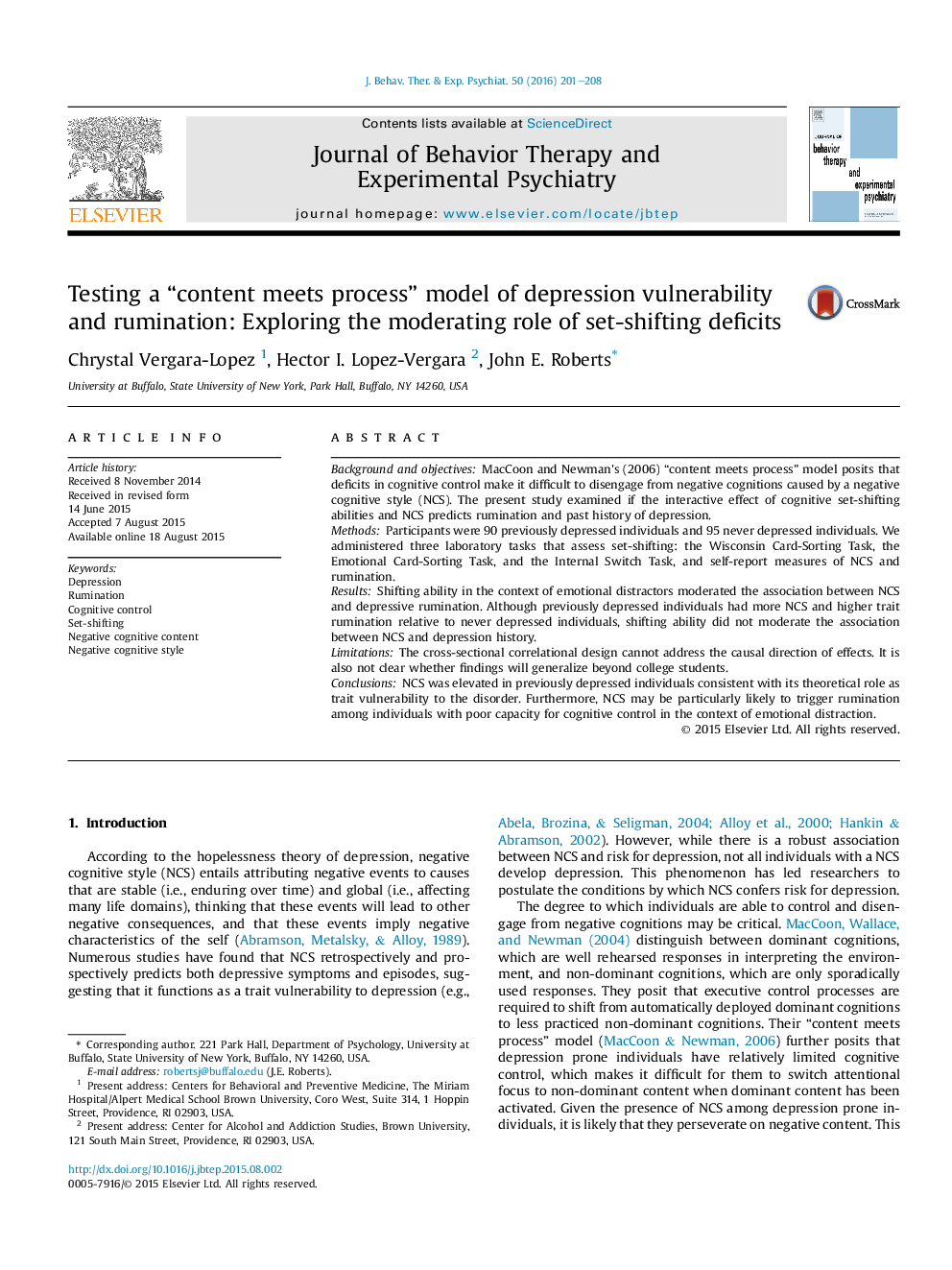| Article ID | Journal | Published Year | Pages | File Type |
|---|---|---|---|---|
| 910299 | Journal of Behavior Therapy and Experimental Psychiatry | 2016 | 8 Pages |
•Cognitive set-shifting × content interaction predicted rumination.•Cognitive content was a stronger predictor of rumination among poor shifters.•Findings were specific to poor set-shifting in context of emotional distractors.•Negative cognitive content predicted past history of depression.•Cognitive set-shifting × content interaction did not predict past depression.
Background and objectivesMacCoon and Newman's (2006) “content meets process” model posits that deficits in cognitive control make it difficult to disengage from negative cognitions caused by a negative cognitive style (NCS). The present study examined if the interactive effect of cognitive set-shifting abilities and NCS predicts rumination and past history of depression.MethodsParticipants were 90 previously depressed individuals and 95 never depressed individuals. We administered three laboratory tasks that assess set-shifting: the Wisconsin Card-Sorting Task, the Emotional Card-Sorting Task, and the Internal Switch Task, and self-report measures of NCS and rumination.ResultsShifting ability in the context of emotional distractors moderated the association between NCS and depressive rumination. Although previously depressed individuals had more NCS and higher trait rumination relative to never depressed individuals, shifting ability did not moderate the association between NCS and depression history.LimitationsThe cross-sectional correlational design cannot address the causal direction of effects. It is also not clear whether findings will generalize beyond college students.ConclusionsNCS was elevated in previously depressed individuals consistent with its theoretical role as trait vulnerability to the disorder. Furthermore, NCS may be particularly likely to trigger rumination among individuals with poor capacity for cognitive control in the context of emotional distraction.
